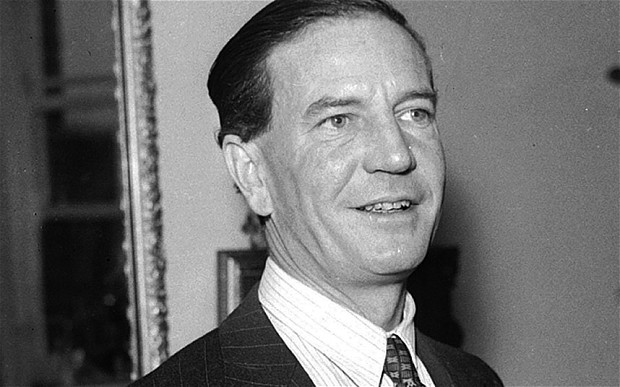Half way through my next book set in the British intelligence services in the years after the defection of master spy, Kim Philby in 1963, and I keep coming back to a challenge posed by a passage in Mikhail Bulgakov’s ‘The Master and Margarita’.

Mikhail Bulgakov knew a thing or two about lies, spies and secret policeman because he lived and wrote in Joseph Stalin’s Soviet Union; Philby was Stalin’s most famous Englishman. He managed to disguise his activities as a Soviet spy in MI6 from three wives and his colleagues in the Service for the best part of 25 years. The narrator of my new novel, Witchfinder, must do something of the same – if he can.
There is a famous passage in The Master on lies and, by extension, the professional liars we call spies:
“The tongue can conceal the truth, but the eyes never! You’re asked an unexpected question, you don’t even flinch, it takes just a second to get yourself under control, you know just what you have to say to hide the truth, and you speak very convincingly, and nothing in your face twitches to give you away. But the truth, alas, has been disturbed by the question, and it rises up from the depths of your soul to flicker in your eyes and all is lost.”
The flicker in the eyes must be what poker players call a ‘tell’. Do spies like Philby have that sort of tell? (Here’s a link to his famous interview from 1955 when he denies he’s a spy to camera)
Philby’s best friend in MI6, Nicholas Elliott, wrote of a man who was ‘instinctively liked’ by others, with ‘an impressive clarity of mind’, who was not ‘a political animal’, because it was the practical business of betrayal that interested him. Or as Elliott puts it; ‘he undoubtedly had a high opinion of himself concealed behind a veil of fake modesty and thus a firm streak of egocentricity’. He enjoyed being a spy and he enjoyed being the member of a club with the other Cambridge University spies, Burgess, Maclean and Blunt.
In his book on Philby, Ben Macintyre quotes the author C.S. Lewis’s famous lecture in 1944, in which he describes the British obsession with ‘the inner ring’, the belief that there is an exclusive circle of people who know more and have greater influence than anyone else – a super elite. Philby was educated at Westminster School and Cambridge, and spying for the Soviet Union presented him with an opportunity to be a member of the most exclusive of circles. ‘Of all the passions’, C.S. Lewis wrote, ‘the passion for the Inner Ring is most skillful in making a man who is not yet a very bad man do very bad things’.

Kim Philby
Philby doesn’t appear in person in my book ‘Witchfinder’ but my narrator shares some of his characteristics. The challenge: sympathy. How do I ensure he doesn’t lose the flicker in the eyes, that might be the something Bulgakov calls ‘soul’, or just his conscience and the remembrance of who he used to be before he became a professional liar.
Ben Mcintyre’s book ‘A Spy Among Friends’ tells the story of the relationship between Elliott and Philby. It’s as good as a spy thriller, and better than most.
